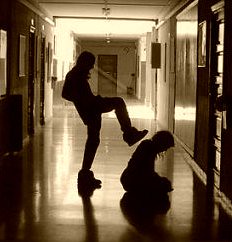
By Dr. Vanlal Thanzami  Jeffrey Cheah School of Medicine and Health Sciences, Monash University Malaysia
Have you been a victim of bullying? It wouldn’t be remiss to state that at some stage in our lives (mostly in our childhood), we have all been bullied, to some degree. In some cases, these scars never heal as there will be detrimental long-term mental health impact on these victims. These horrid experiences, during their formative years, still shape some of their current behaviors and personas.
A more pertinent question to be asked is, have you been a bully in your childhood? Bullies typically exhibit repetitive aggressive behavior with an intention to cause harm. For them, it is a display of power, whether it is done in front of an audience or in private. In the long run, these people display anti-social behavior and may even end up as hardened criminals. No one becomes a bully overnight. In several cases, it is a direct result of what they witness in their own homes and stems from upbringing. Personalities also matter; an unemotional child can mean that they have lack of empathy for other people. In a lot of instances, these bullies were once victims themselves.
So, how does one recognise that they are being bullied? There is a huge psychological and emotional impact on victims. Being bullied invariably alters one’s stress axis; it knocks their self-esteem and they find it difficult to trust people easily. Victims also suffer from social anxiety and depression. They become more withdrawn and slowly develop suicidal tendencies. While these are some short-term effects, these linger on and over a period of time, the victim slowly transforms into a bully.
Standing up to your bully and expecting them to back down might trigger a consequence to the contrary, because each case of bullying is different from the next. It is best not to antagonize the bully even further, but to beat a hasty retreat.
So how does one address this, right at the start? It is important for the child to confide in someone. It could be their parents, siblings or a teacher that they are comfortable with. Parents also need to be aware of behavioral changes in their child, whether it is in the case of their child being a victim to bullying or whether their child is the perpetrator. They need to be able to make the distinction between regular growing-up pangs and serious bullying.
Similarly, schools should not condone bullying behaviors and needs to take pro-active steps to promote an environment that children find comfort in. Effective measures need to be put in place to ensure teachers are equipped to identify potential cases and can take remedial measures; from monitoring and counselling to being able to take corrective measures. There should also be avenues or platforms where children can report on bullying anonymously.
While bullying is common, it needs to be handled in a sensitive, mature and swift manner before it precipitates into an issue that affects both the victim and the bully in the long-term.